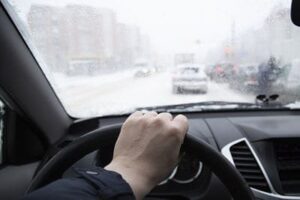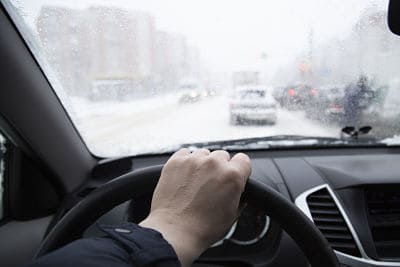 As Chicago prepares to face heavy snowfall and its first subzero temperatures in almost a year, GWC Injury Lawyers LLC would like to share some important winter driving tips to help keep you and your loved ones safe this season.
As Chicago prepares to face heavy snowfall and its first subzero temperatures in almost a year, GWC Injury Lawyers LLC would like to share some important winter driving tips to help keep you and your loved ones safe this season.
Is Winter Driving Dangerous?
Winter weather conditions, such as accumulated snow, storms, ice, sleet, and fog, offer significant challenges in terms of visibility and vehicle control to people traveling on the road – challenges many of them fail to overcome, as winter accident statistics suggest. Approximately 17 percent of all auto crashes each year happen in winter weather conditions, many of them resulting in serious bodily harm. According to the Federal Highway Administration, every year:
- There are over 76,000 injuries in crashes during snowfall or sleet.
- More than 116,000 people are injured in snowy or icy road accidents.
- Over 900 people die in auto accidents during sleet or snowfall.
- Over 1,300 people are killed in crashes on snowy or icy roads.
This annual toll of injury and death from winter weather is alarming. But while winter is unavoidable, winter accidents are not, provided that you follow these important winter driving tips, both on and off the road.
“Winterize” Before You Drive
Winter weather is hard not just on drivers and their passengers, but also on the vehicles themselves. For this reason, some of the most important winter driving tips apply to the period before you drive. Ahead of the winter season, make sure that your vehicle has been properly prepared for the season, or “winterized.”
Proper winter preparation for your vehicle includes doing the following:
- Test Your Car Battery – A car battery can lose about 35 percent of its strength at 32°F and about 60 percent at 0°F. Starting an engine can also take up to twice as much current under cold temperature. Make sure your battery has sufficient charge before you head out on the road so you don’t end up stranded on it.
- Check the Inflation and Tread of Your Tires – Tire pressure is usually lower in winter, which can slow down your car’s steering reaction time, while low tread depth can cause your tires to lose their grip on snowy or icy roads.
- Keep Your Gas Tank at Least Half Full – Condensation in the empty part of your gas tank can freeze in the winter, icing your fuel lines and preventing your vehicle from starting.
- Make Sure You Have Enough Coolant and Antifreeze – Insufficient levels can cause your engine to freeze and stall when you can least afford it.
- Prepare Emergency Cold Weather Gear – In the unfortunate event of getting stuck or stalled in winter, it is important to have the materials needed to stay safe until help arrives, including:
- Warm Clothing and Blankets
- Extra Food and Water
- Prescription Medications
- Flashlights and Ice Scrapers
Winter Driving Tips for the Road
While a properly winterized vehicle is essential before you begin a trip, there are a number of things you need to do when you are driving in order to stay safe. Some important safe winter driving tips to keep in mind include:
- Drive at an Appropriate Speed – Always adjust your speed to road conditions, particularly when faced with the lower traction that comes with snow and ice.
- Accelerate and Decelerate Slowly – Sudden changes in speed can cause your vehicle to skid.
- Increase Your Following Distance – Slowing down or stopping on icy or snowy roads takes longer, so keep more car lengths between yourself and other vehicles.
- Avoid Using Cruise Control on Slippery Roads – This feature can cause your car’s wheels to spin rapidly during a skid in an effort to maintain a constant speed, making you more likely to lose control.
- Use Your Brakes Properly – Always keep your heel on the floor and use the ball of your foot to apply firm and steady pressure on the brake pedal.
What If I Still Have a Winter Car Accident?
Even if you follow all of these winter driving tips, however, winter car accidents can still happen. If they do, there are a number of important steps to take to better position yourself for success in a future car accident claim:
- Keep Yourself Safe – Move away from the road before dealing with the post-accident process to avoid any further injury.
- Call the Police – Police investigations are essential for car accident claims, since police officers are trained to gather all important information and documentation. Be sure to tell the officer YOUR version of events and ask any witnesses who were present at the crash to share their accounts as well.
- Take Pictures – The positioning and physical condition of vehicles can be very important when determining liability and compensation, so take extensive pictures of the scene. This will provide you with the evidence needed to prove the parties involved, where the vehicles ended up, and what some of the damages were.
- Gather Information from All Drivers – Photograph the relevant documentation as well, if possible. This should include:
- Name
- Address
- Phone Number
- Email Address
- Insurance Company and Policy Number
- License Plate
- Driver’s License Number
- Collect Witness Information – Because many car accident claims turn out to be a case of your version versus the other driver’s, witnesses can be critically important in making your case. Get contact information from all the witnesses present, including:
- Name
- Address
- Phone Number
- Email Address
- Get Medical Treatment as Soon as Possible – It is best to take an ambulance from the scene of the auto accident, if needed, so be sure to ask the 911 operator to send paramedics along with the police. Any delay in treatment can hinder your overall ability to recover from your injuries, and it may be used by the at-fault driver’s insurance company to contest your claim.
- Contact Your Own Insurance Company – This is an essential step to help preserve your benefits under your own policy. If you have full coverage on your vehicle, you can initially rely upon your own insurance carrier to get your car repaired, cover the cost of some of your medical bills, and establish a possible Uninsured/Underinsured Motorist (UM/UIM) claim in the event that the other vehicle did not have a valid insurance policy at the time of the crash, or if that coverage is insufficient.
What Else Can I Do to Help My Winter Car Accident Claim?
If you have taken all of the above steps following your winter car accident, and are wondering what to do next, consider following in the footsteps of thousands of people before you and contact the Chicago car accident attorneys at GWC Injury Lawyers LLC.
At GWC, we have recovered more than $2 billion in verdicts and settlements on behalf of our clients, establishing our reputation as one of the leading Personal Injury and Workers’ Compensation law firms in Illinois. With this proven record of success, our dedicated Chicago car accident lawyers can help you and your family get the justice you deserve.
To schedule a free, no-obligation consultation with one of GWC’s attorneys, call our office at (312) 464-1234 or click here to chat with a representative at any time.
<< BACK TO BLOG POSTS